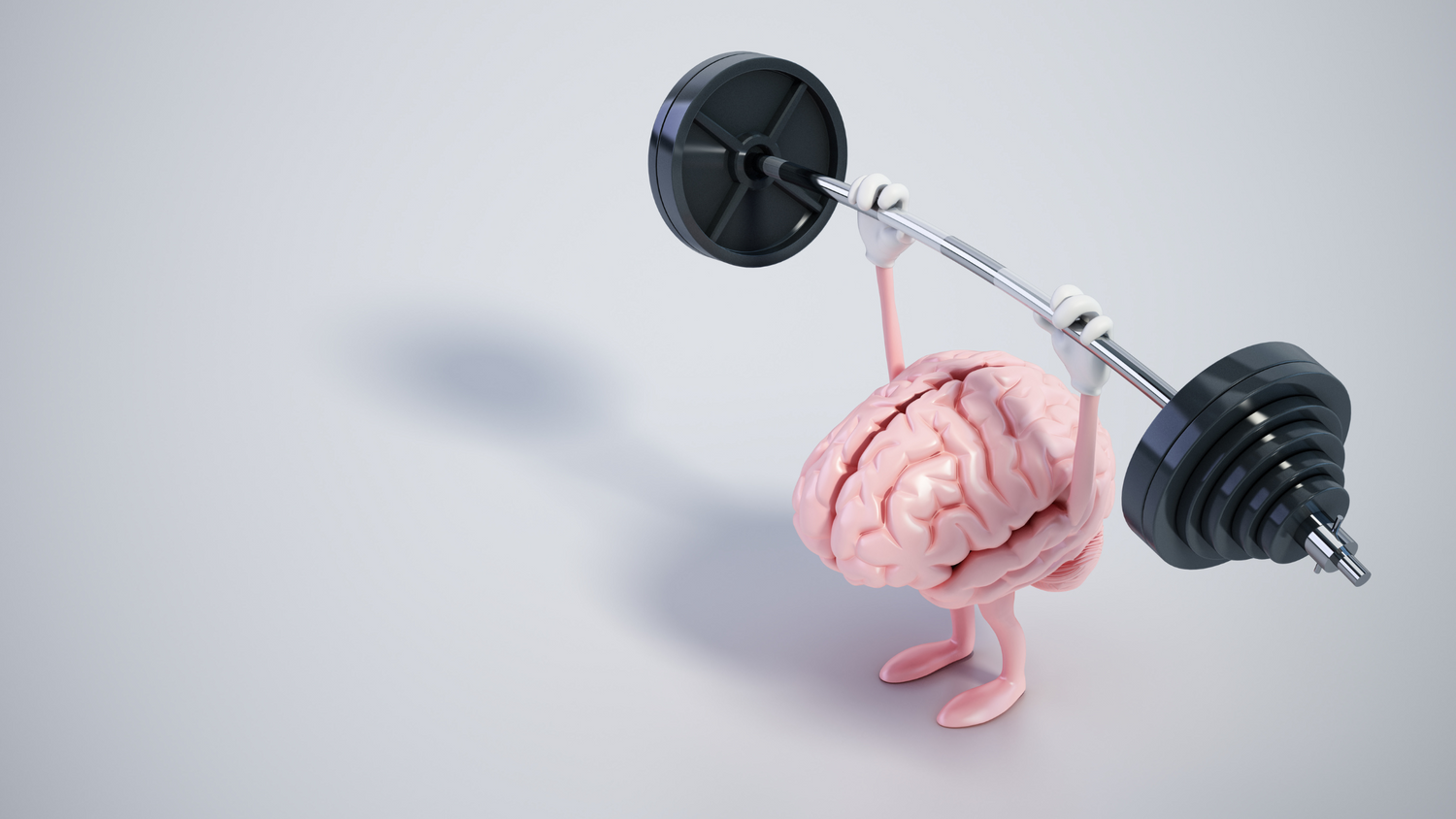The search for ways to enhance memory and cognitive health has highlighted a fascinating compound called spermidine. A naturally-occurring polyamine that we naturally produce but declines with age, spermidine is gaining attention for its potential to support brain health and memory impairment in older individuals.
What is Spermidine?
Spermidine is part of a family of compounds called polyamines that play a big role in how our cells grow and repair themselves. It was originally discovered in human sperm—hence the name—but today we know it is present in many parts of the body and in certain foods, such as wheat germ, soybean and shiitake mushrooms [1].
One of its most exciting roles is in a process called autophagy, which you can think of as the body’s natural "cleaning system" [2]. Autophagy helps cells get rid of damaged parts, keeping them functioning at their best. This cellular clean-up is particularly important for brain cells, which need to stay in top shape to keep up with the demands of thinking, learning, and remembering.
How Does Spermidine Act on the Brain?
One reason spermidine has sparked so much interest is for its ability to cross the blood-brain barrier, a protective shield that keeps harmful substances out of the brain [3]. Once in the brain, spermidine gets to work:
- Supporting the brain’s ability to clear out waste and repair itself, which is essential for long-term health.
- Helping to build and maintain connections between brain cells, which are critical for learning and memory.
- Improving energy production in brain cells, ensuring they function efficiently.
- Reducing inflammation (one of the hallmarks of aging) in brain tissue, protecting against damage over time.
By promoting these processes, spermidine creates an environment where the brain can perform at its best, whether you’re learning something new or recalling important information.
Spermidine and Memory: What Does the Research Say?
The evidence supporting spermidine's role in enhancing memory is becoming increasingly robust. Animal studies have provided some of the most compelling insights, showing how spermidine supplementation can mitigate age-related cognitive decline. For example, older mice given spermidine performed significantly better on memory tests compared to those that didn’t receive the compound [4]. They demonstrated improved abilities in spatial navigation, like completing mazes, and object recognition tasks, such as distinguishing between familiar and new items. These results suggest that spermidine might help reverse some of the typical effects of aging on the brain by enhancing its functional capacity.
In human studies, although still in the early stages, the findings are equally encouraging. One clinical trial observed that individuals who supplemented with spermidine for several months experienced marked improvements in memory performance. They were better able to recall information and process new data more quickly, a critical aspect of cognitive sharpness. Notably, participants also showed improvements in memory consolidation during sleep, a phase when the brain processes and organizes information gathered throughout the day [5]. These results are particularly exciting because they highlight spermidine’s potential to enhance not just everyday memory but also the deeper, more structural aspects of cognitive health.
Beyond Memory: Other Cognitive Benefits of Spermidine
Spermidine's benefits in the brain go beyond memory enhancement, touching on several key aspects of cognitive health.
Focus and Attention
For those struggling to stay focused or juggle multiple tasks, spermidine might offer a natural solution. Emerging studies suggest that the compound helps improve attention span, making it easier to stay engaged in mentally demanding activities [6]. This effect is likely linked to its role in promoting healthy synaptic connections, which facilitate efficient communication between brain cells. Enhanced focus can have far-reaching benefits, from increased productivity to better learning outcomes.
Neuroprotection and Resilience
One of the most promising aspects of spermidine is its potential to protect the brain against age-related decline. Chronic inflammation and oxidative stress are two significant contributors to conditions like Alzheimer’s disease and other forms of dementia. Spermidine’s ability to reduce inflammation in neural tissue and support the brain's natural "cleaning" processes through autophagy makes it a potent neuro-protective agent [7]. These mechanisms help preserve brain cells and maintain their functionality over time, potentially delaying or preventing the onset of cognitive decline.
Enhancing Neuroplasticity
Neuroplasticity—the brain’s capacity to adapt and reorganize itself—is a cornerstone of learning and cognitive resilience. This adaptability allows us to form new neural connections, acquire new skills, and recover from injuries or age-related decline. Spermidine appears to enhance neuroplasticity by encouraging the repair and growth of synaptic connections and by maintaining cellular energy production through healthier mitochondria [8]. This means that spermidine could not only help us retain what we already know but also enable us to keep learning and adapting as we age.
Mood and Emotional Regulation
While not as extensively studied as its effects on memory and focus, preliminary research suggests that spermidine might have a positive impact on mood and emotional stability. By reducing inflammation and oxidative stress and supporting gut health—factors often linked to mood disorders like depression—spermidine may contribute to a healthier emotional state [9].
What’s Next for Spermidine Research?
Scientists are just beginning to scratch the surface of what spermidine can do. Current studies are focused on understanding how it works over the long term, what doses are most effective, and whether combining it with other brain-boosting compounds can amplify its effects. There’s also growing interest in how spermidine might help prevent or slow cognitive decline in conditions like Alzheimer’s disease.
While we wait for more definitive answers, the research so far is promising enough to suggest that spermidine is a key tool in supporting brain health.
What’s Next for You? Incorporating Spermidine into your Daily Routine
Incorporating spermidine into your daily routine doesn’t have to be complicated. This powerful compound is naturally found in many common foods. Wheat germ, a versatile ingredient for smoothies or baked goods, is one of the best sources. Other rich options include aged cheeses like parmesan, mushrooms, soybeans, and fermented foods such as natto or miso.
However, if you’re looking for a more convenient and consistent way to ensure you're getting enough to support your cognitive health, supplementation can be a great option. That’s where Primeadine®, Oxford Healthspan’s premium spermidine supplement, comes in. Primeadine® stands out with its pure, food-derived spermidine from Japan, ensuring a clean, bioavailable supplement without synthetic additives and guaranteed potency, purity, and safety through rigorous third party testing. Backed by cutting-edge science and developed with leading scientists, Primeadine® is crafted to work effectively at the cellular level.
References
[1] Madeo, F., Eisenberg, T., Pietrocola, F., & Kroemer, G. (2018). Spermidine in health and disease. Science, 359(6374), eaan2788. DOI: 10.1126/science.aan2788
[2] Eisenberg, T., Knauer, H., Schauer, A., et al. (2009). Induction of autophagy by spermidine promotes longevity. Nature Cell Biology, 11(11), 1305–1314. DOI: 10.1038/ncb1975
[3] Gupta, V. K., Scheunemann, L., Eisenberg, T., et al. (2013). Restoring polyamines protects from age-induced memory impairment in an autophagy-dependent manner. Nature Neuroscience, 16(10), 1453–1460. DOI: 10.1038/nn.3512
[4] Schroeder S, Hofer SJ, Zimmermann A, Pechlaner R, Dammbrueck C, Pendl T, Marcello GM, Pogatschnigg V, Bergmann M, Müller M, Gschiel V, Ristic S. Dietary spermidine improves cognitive function. Cell Rep. 2021 Apr 13;35(2):108985. doi: 10.1016/j.celrep.2021.108985
[5] Schwarz C, Benson GS, Horn N, Wurdack K, Grittner U, Schilling R, Märschenz S, Köbe T, Hofer SJ, Magnes C, Stekovic S, Eisenberg T, Sigrist SJ, Schmitz D. Effects of Spermidine Supplementation on Cognition and Biomarkers in Older Adults With Subjective Cognitive Decline: A Randomized Clinical Trial. JAMA Netw Open. 2022 May 2;5(5):e2213875. doi: 10.1001/jamanetworkopen.2022.13875. PMID: 35616942; PMCID: PMC9136623
[6] Ni YQ, Liu YS. New Insights into the Roles and Mechanisms of Spermidine in Aging and Age-Related Diseases. Aging Dis. 2021 Dec 1;12(8):1948-1963. doi: 10.14336/AD.2021.0603. PMID: 34881079; PMCID: PMC8612618
[7] Wang IF, Tsai KJ, Shen CK. Spermidine on neurodegenerative diseases. Cell Cycle. 2015;14(5):697-8. doi: 10.1080/15384101.2015.1006551. PMID: 25715121; PMCID: PMC4614629
[8] Ferchmin PA, Eterović VA. Role of polyamines in experience-dependent brain plasticity. Pharmacol Biochem Behav. 1987 Feb;26(2):341-9. doi: 10.1016/0091-3057(87)90128-6. PMID: 2437595
[9] Qi G, Wang J, Chen Y, Wei W, Sun C. Association between dietary spermidine intake and depressive symptoms among US adults: National Health and Nutrition Examination Survey (NHANES) 2005-2014. J Affect Disord. 2024 Aug 15;359:125-132. doi: 10.1016/j.jad.2024.05.041. Epub 2024 May 8. PMID: 38729223





Leave a comment
All comments are moderated before being published.
This site is protected by hCaptcha and the hCaptcha Privacy Policy and Terms of Service apply.